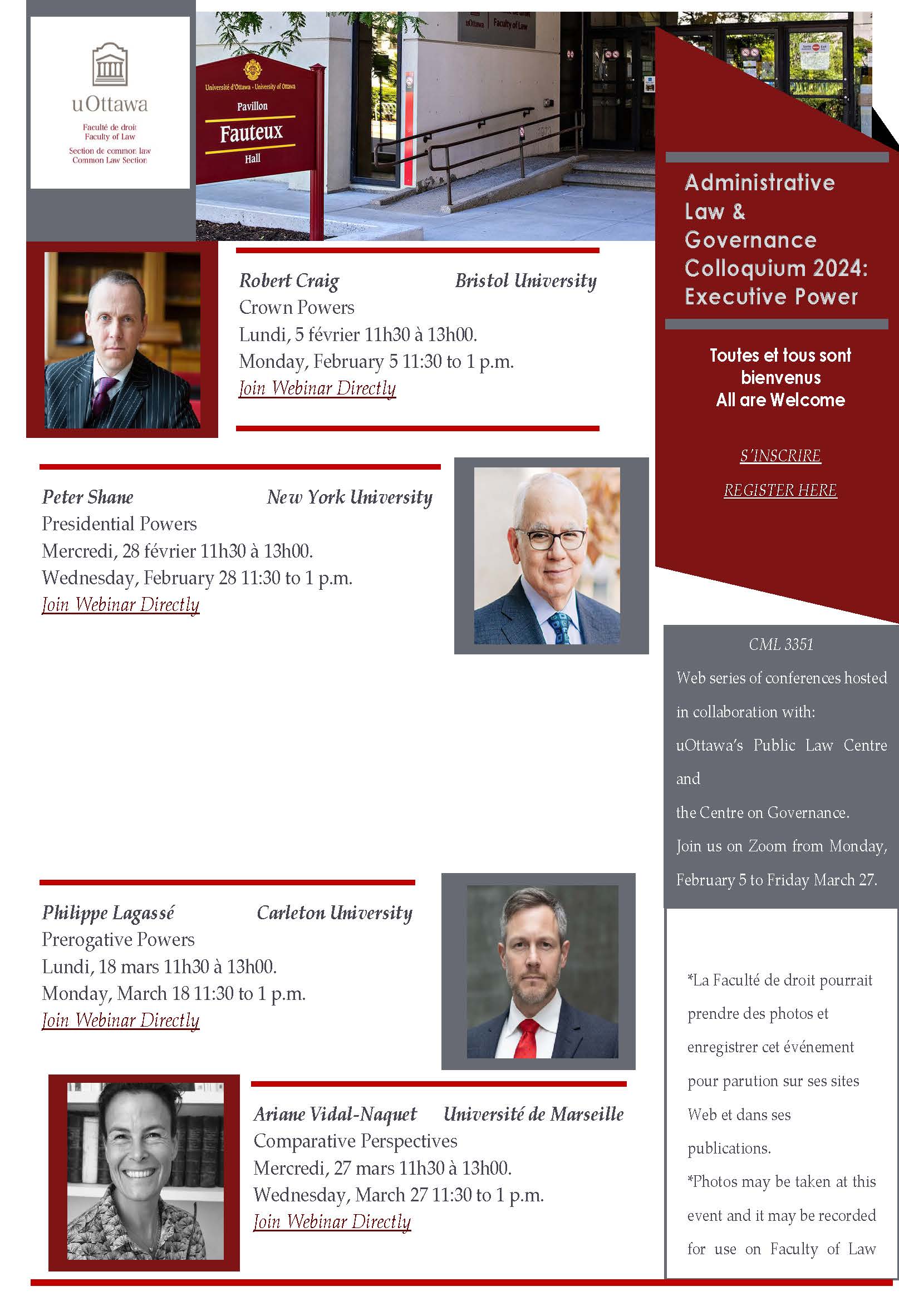Reminder: Peter Shane on Presidential Powers Wednesday 11.30 eastern time

A reminder that Professor Peter Shane (NYU) will be joining me on Wednesday, at 11.30 eastern time, in the latest instalment of this year’s Administrative Law & Governance Colloquium on “Executive Power“.
Professor Shane and I will be discussing his book Democracy’s Chief Executive:
In the eyes of modern-day presidentialists, the United States Constitution’s vesting of “executive power” means today what it meant in 1787. For them, what it meant in 1787 was the creation of a largely unilateral presidency, and in their view, a unilateral presidency still best serves our national interest. Democracy’s Chief Executive challenges each of these premises, while showing how their influence on constitutional interpretation for more than forty years has set the stage for a presidency ripe for authoritarianism.
Democracy’s Chief Executive explains how dogmatic ideas about expansive executive authority can create within the government a psychology of presidential entitlement that threatens American democracy and the rule of law. Tracing today’s aggressive presidentialism to a steady consolidation of White House power aided primarily by right-wing lawyers and judges since 1981, Peter M. Shane argues that this is a dangerously authoritarian form of constitutional interpretation that is not even well supported by an originalist perspective. Offering instead a fresh approach to balancing presidential powers, Shane develops an interpretative model of adaptive constitutionalism, rooted in the values of deliberative democracy. Democracy’s Chief Executive demonstrates that justifying outcomes explicitly based on core democratic values is more, not less, constraining for judicial decision making—and presents a model that Americans across the political spectrum should embrace.
Join the webinar by clicking here (passcode 613677). You may also register here.
Here is Professor Shane’s bio:
Professor Peter Shane has developed an expertise in public law, especially pertaining to US presidential powers through his career both within the federal government and as a scholar. He has published nine books, notably one recently published in 2022 called Democracy’s Chief Executive: Interpreting the Constitution and Defining the Future of the Presidency. He received his JD from Yale and graduated from Harvard in social studies. He is currently an Adjunct Professor at the New York University Faculty of Law where he teaches on constitutional, administrative, democracy and presidential law. He has previously taught at Ohio State University, where he received the Distinguished Sholar award in 2011, and at the University of Iowa, and he served as Dean in the University of Pittsburgh School of Law. To each of these positions, he has brought his practical perspective developed in the federal sector, where he was Attorney-adviser for US Department of Justice of Legal Counsel and Assistant general counsel in Office of Management and Budget.
This content has been updated on February 26, 2024 at 14:07.